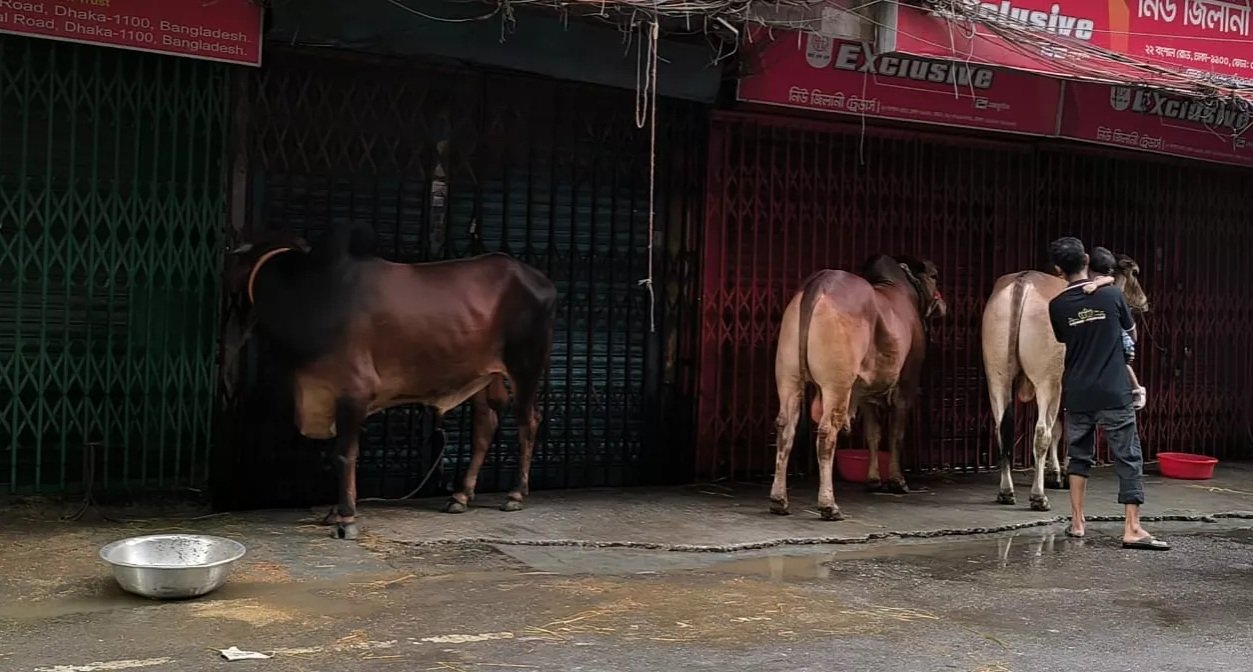Shortage of butchers delays sacrificial slaughter on Eid Day in Dhaka

Although Eid-ul-Azha was observed with the ritual slaughter of sacrificial animals from early morning, many residents of Dhaka were unable to perform Qurbani (animal sacrifice) on the first day due to a shortage of butchers caused by high demand.
To avoid the rush, many city dwellers chose to postpone their sacrifices for the following days.
UNB’s visits to Old Dhaka revealed scenes of this nature across several neighborhoods on Saturday.
A man named Abul Kalam was seen sitting beside three cows. When asked whether he was selling them, he replied, "No, these are for sacrifice tomorrow. On the first day, butchers are so busy with work. So, we prefer to sacrifice on the second day."
Another resident, Mohammad Hridoy, was found sitting beside two cows. He echoed a similar sentiment: "The first day is always hectic, and everyone’s busy. We prefer to do it in a more relaxed manner, so we’ll perform the slaughter tomorrow morning."
Unsold Hides Pile Up
Meanwhile, in areas around Nazirabazar and Sadarghat in Old Dhaka, traders were seen sitting with piles of rawhides well into the evening, many of which remained unsold.
Imam Hossain, one of the hide traders, was asked why the hides hadn’t been sold yet. He explained, "Due to current market rates, many buyers are unwilling to purchase. However, some hides were sold earlier in the day."
When asked about the pricing, he said, "The price depends on the size. A large cowhide goes for around Tk 1,000, a medium one for about Tk 800, and smaller ones range between Tk 600 and Tk 700."
Buyers, on the other hand, complained about high prices. Asif, a buyer looking to purchase in the evening, said, "I came now because prices tend to drop a bit later in the day."
Eid-ul-Azha, one of the most significant religious festivals for Muslims, is marked by the sacrifice of livestock such as cows, goats, and sheep.
While many prefer to complete their Qurbani on the first day, others spread the ritual over the next two days. Some wait until the third and final day to complete the sacrifice.



